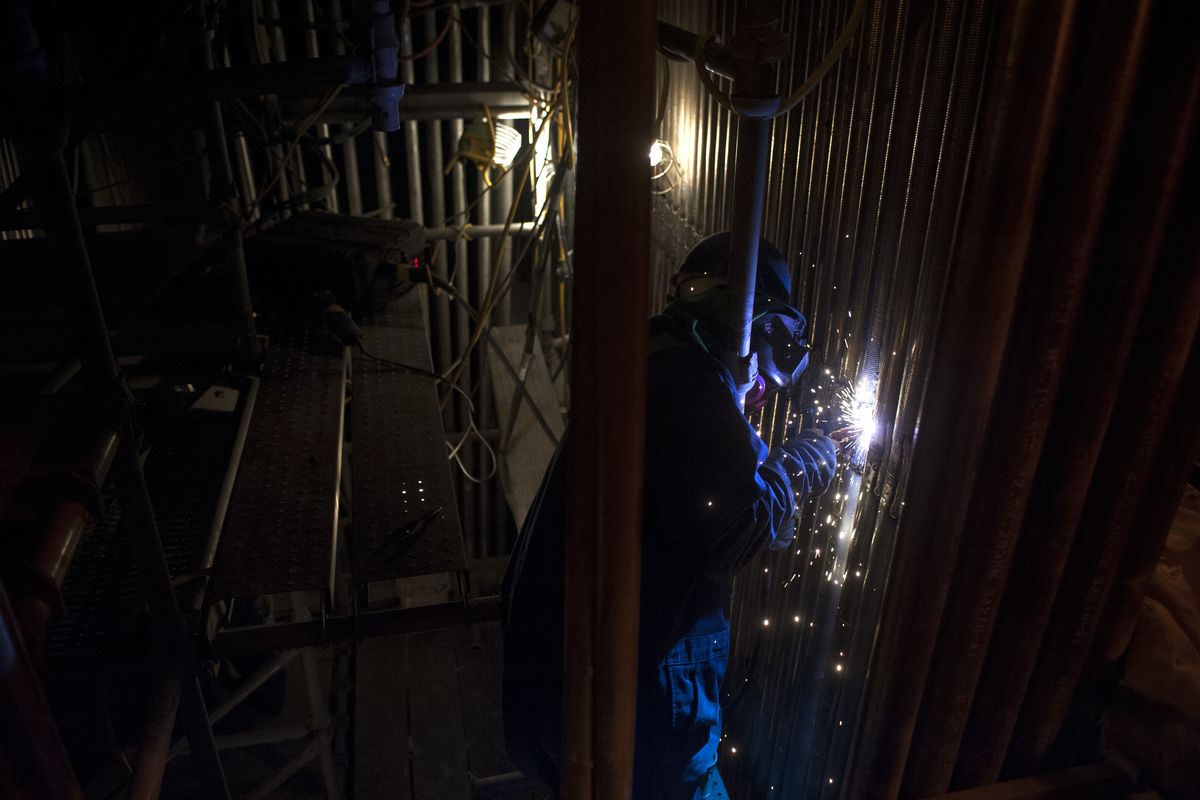Spokane cedes control of solid waste system to county

The Spokane City Council on Monday did something that seemed almost unthinkable a decade ago: It gave up control of the Spokane Regional Solid Waste System.
In a unanimous vote, the council agreed to give Spokane County authority over the regional trash system in November and approved the sale of the Valley and Colbert waste transfer stations to the county for $9.9 million.
The Spokane County Commission is expected to approve the deal today.
“A regional solution is the best solution,” Spokane Mayor David Condon said. “It will be beneficial to all parties.”
The city will retain ownership of the Waste-to-Energy Plant, but the county has agreed to burn trash collected within the unincorporated county and from any other city that joins the system at the plant for seven years while the county pays off the transfer stations. The county could start bypassing the incinerator within three years as long as it paid off its debt for the stations. The most likely alternative to the incinerator would be to ship garbage by rail or truck to landfills outside the county.
The new system brings risk to the city: It could lose up to about half the flow of the garbage it gets now if the county and other cities, including Spokane Valley, opt out of the incinerator.
Spokane leaders insist the plant would remain functional even if it only burned garbage from within city limits. But they acknowledge that rates would likely climb.
With the debt for the incinerator paid off, rates have held steady in recent years. Garbage trucks that dump trash at the plant pay $99.50 a ton. That’s about the price that’s expected to be charged even after the county leads the system if other cities agree to join. Garbage trucks that dump at county-owned transfer stations are expected to pay about the same rate.
City Councilman Steve Salvatori said a new system that makes the city’s plant compete on price will likely lead to a more efficient plant.
“We need to be competitive,” Salvatori said. “That will give our citizens a better deal.”
City officials say they will examine the possibility of operating the incinerator with city employees and ending its long relationship with Wheelabrator, the Waste Management subsidiary that has run the plant since it opened.
The state requires all cities and counties to adopt a solid waste plan. In every Washington county, with the exception of King, there is one countywide plan with all cities participating. Seattle has its own system.
With some cities and towns in Spokane County considering going their own way, that list could grow.
Cheney, the only other city in Spokane County besides Spokane with a city-run garbage collection service, already has written a draft solid waste plan. Spokane Valley officials have told county officials that they haven’t decided if they will join.
Spokane Valley Mayor Dean Grafos said city leaders will participate in a meeting later this month when county officials will make their pitch to other cities to join. He said the city will look at “all options.”
“I can’t say ‘yes’ or ‘no,’ ” Grafos said. “It’s something that we will look at very carefully.”
Spokane County Commissioner Todd Mielke warns that breaking up a regional system could mean that everybody will pay more. Some city officials aren’t considering the costs of state mandated programs that must be maintained by each solid waste system, including recycling education and disposal of household hazardous wastes, he said.
“I hope at the end of it, we recognize that we are all working toward the same goal,” Mielke said.
Ken Gimpel, business director of the city-led regional trash system, said if Spokane Valley doesn’t join the county system, the cost to dump a ton of trash at the Waste-to-Energy plant could increase by about $10. That’s enough, he said, to impact residential curbside customers with 50 cent-per-month rate increases.
Gimpel said that if a city or town doesn’t join, Spokane would have to decide if it would allow that city’s residents to use the Waste-to-Energy transfer station as a dump. If it does, he said, Spokane likely would charge those citizens extra. Mielke said the county likely would charge Spokane Valley residents a surcharge to use its transfer stations.
A quarter-century ago, faced with leaky landfills and the challenge of opening new ones, city and county leaders decided to build a trash incinerator to dispose of all the trash in Spokane County. At the time, the city was in a better financial position to take on the debt for the Waste-To-Energy Plant on the West Plains, and so the city not only got ownership of the plant and transfer stations, but it won control of the system, though county commissioners still had the right to veto certain decisions like rate increases.
The financial and environmental controversies of the system’s early years have faded, but county and officials from smaller cities often believed they overpaid to have their trash burned.
Mielke, who has sometimes criticized the city’s leadership of the system, said that in retrospect, the regional trash system has mostly been a success.
“With solid waste, you want to roll your can out to the curb and you want it to be emptied when you come home from work,” Mielke said. “From that perspective it worked very well. And as elected officials we absolutely cannot lose sight of that.”